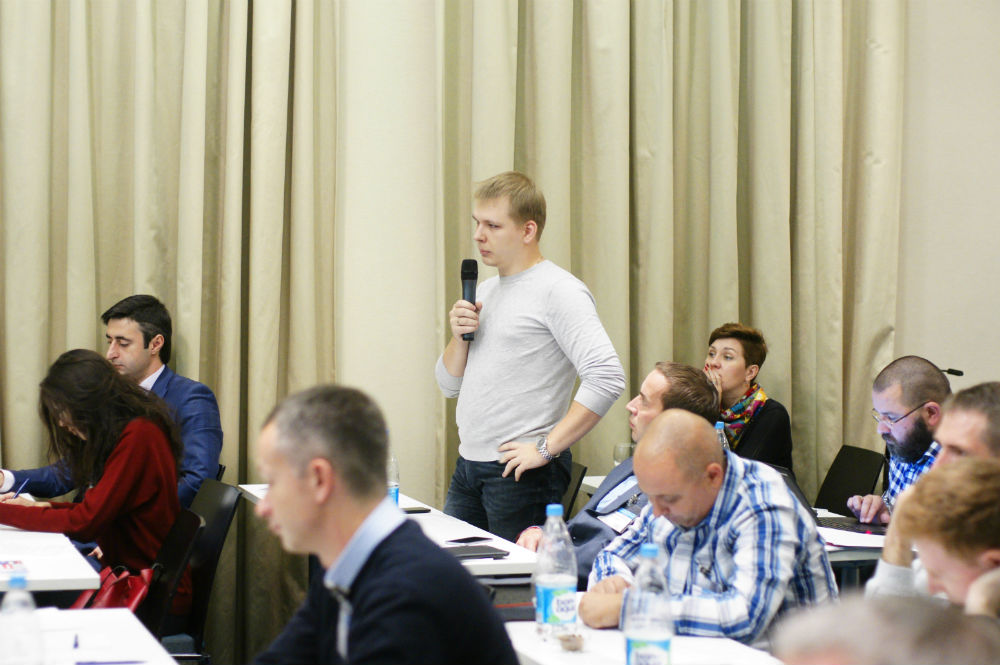Some interesting facts and insights from the conference "Electronic Money and Payments"
During the discussion, it turned out that almost all areas of online retail dipped due to the crisis. The Russians began to travel abroad less, but began to spend more money on inexpensive entertainment, whether it be online games or going to the movies.
The market of electronic payment systems in Russia largely depends on two main aspects:
- the willingness of the population to store money electronically, pay for services and goods with a card or other non-cash methods;
- legislative framework governing the industry of electronic payment systems and services.
Under current conditions, about 87% of Russians still prefer to withdraw money from the card and operate on cash, including paying for various services through terminals, losing on commissions. This fact is due not only to a low degree of trust in banks in unstable times, but also to the underdeveloped banking infrastructure in the regions, as well as to a habit that has taken root historically.
As for the current legislation , so far it does not contribute to the emergence in Russia of innovative payment services that could have the prospect of entering the world market. Blockchain-based fintech startups are also unlikely due to a mixed relationship. to her regulator. Although this technology is already carefully studied by many industry players. In the future, the launch of Android Pay in Russia may have a huge impact on the industry, which has not yet been announced by Google, but this could very well happen in the short term.
In the current realities, the industry is developing towards the introduction of cashless payments in various areas of online business. Dmitry Danilenko, Head of Qiwi, International Translation and E-Commerce Division, shared their experience of monetizing the gaming audience, as well as nanocrediting in games:
http://www.slideshare.net/AleksandrsBaranovs/qiwi-qiwi
Enthusiastic game users, not wanting to be distracted by tying their cards or other time-consuming ways to replenish the game balance, are happy to make loans for small amounts. Most players do not care about a high percentage on a microloan, since we are talking about amounts not exceeding 300 rubles, the value of which is in their instant availability during the game.
They discussed the possibility of developing a payment service service in Russia for subscribers of a mobile operator, similar to M-Pesa, which rapidly spread to African countries. The topic is interesting for Russian mobile operators, and in the future its development is possible, but now there are no suitable conditions for this.
What conditions are we talking about, using the same M-Pesa as an example:
- The company entered the market in conditions of support from regulators and the existing relevant legislative frameworks.
- The international mobile market giant Vodafone partially owns both Safaricom (launched M-Pesa in Kenya) and Vodacom (M-Pesa-Tanzania), and also has a number of agreements with mobile leaders in Afghanistan, Egypt, India and South Africa, which makes it possible to easily extend the M-Pesa model to the markets of these countries.
- Almost immediately after the launch, the marketing initiatives of mobile operators were redirected from brand promotion to educational programs for the population to use the capabilities of the new payment model.
More information about the experience of launching the M-Pesa service can be found in this study .
The same fast-growing African market for cashless payments is also in the sphere of interest of the world's largest electronic payment system PayPal, as Olga Lonshakova, Head of Business Development at PapPal, said.
The CONTACT money transfer system at this time is developing its business in the Asian direction, as Elena Gafarova, vice president of CONTACT, told:
http://www.slideshare.net/AleksandrsBaranovs/contact-53535337
The largest direction in terms of the turnover of money transfers of individuals among non-CIS countries (data from the Bank of Russia) was China. In 2014, $ 825 million was sent from Russia to China via money transfer systems, $ 109 million in the opposite direction. For comparison: the turnover of transfers between the USA and the Russian Federation - $ 179 million. It is noteworthy that 97% of transfers sent to China through the CONTACT system, accounted for only 8 cities of the Middle Kingdom. 80% of transfers are addressed to the accounts of individuals.

While other industry representatives are focusing on some specific areas of business development, Western Union, which operates in 200 countries, invests 3.5% of its revenue in compliance, in accordance with the constantly tougher legislation of the countries in which the company operates. And as noted by Alexandra Badulescu, Regional Vice President of Western Union in Eastern Europe and the CIS, the company is ready to share its expertise in this area with its partners.
